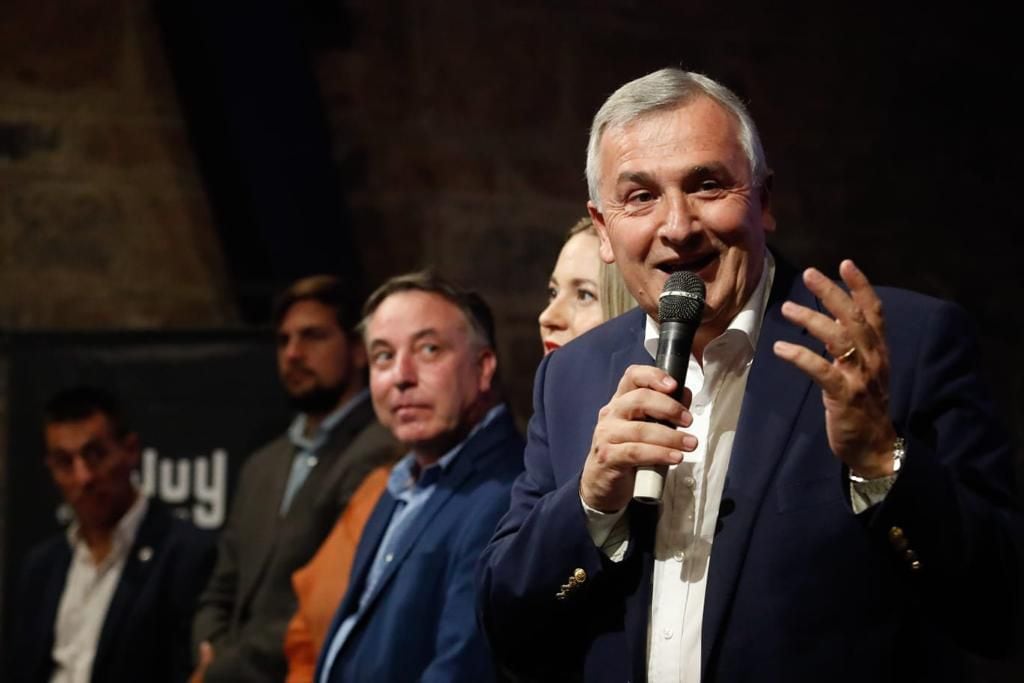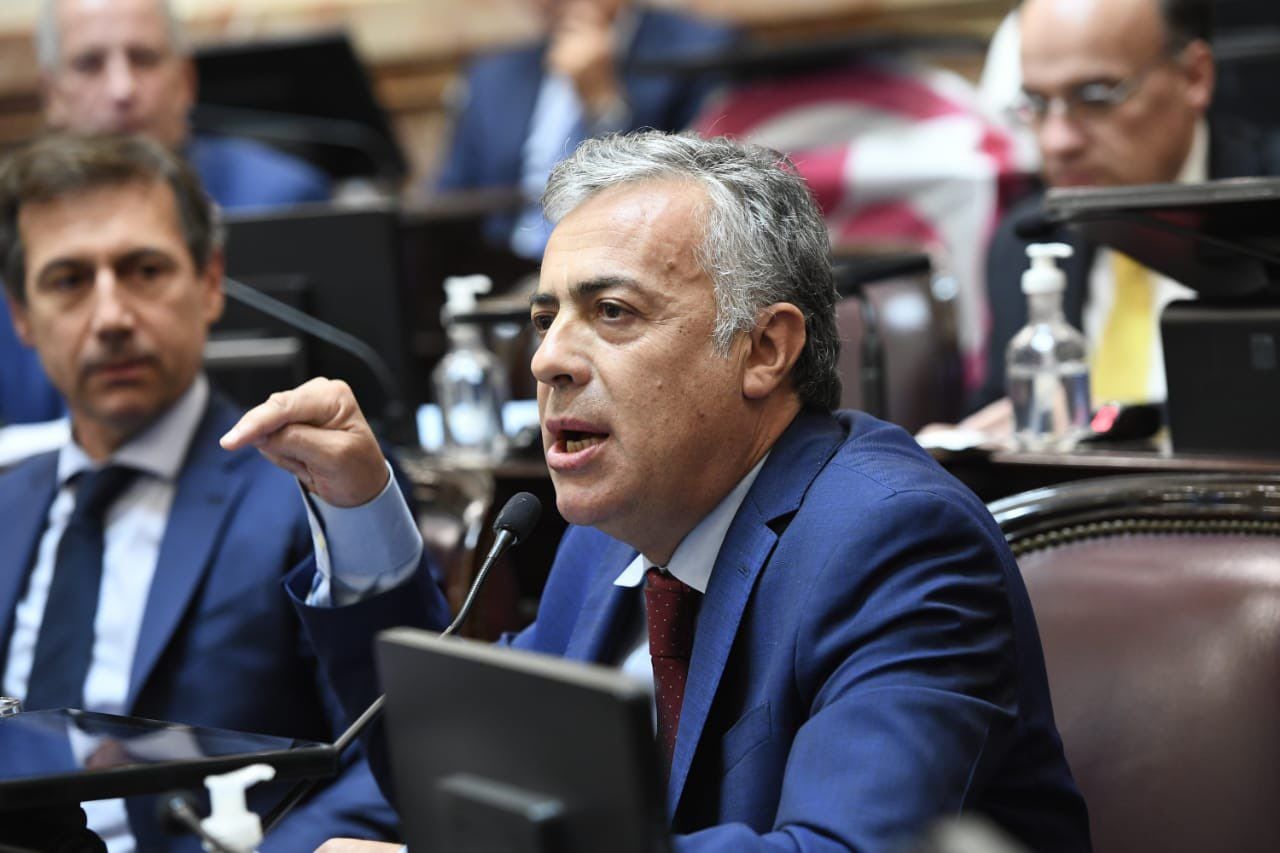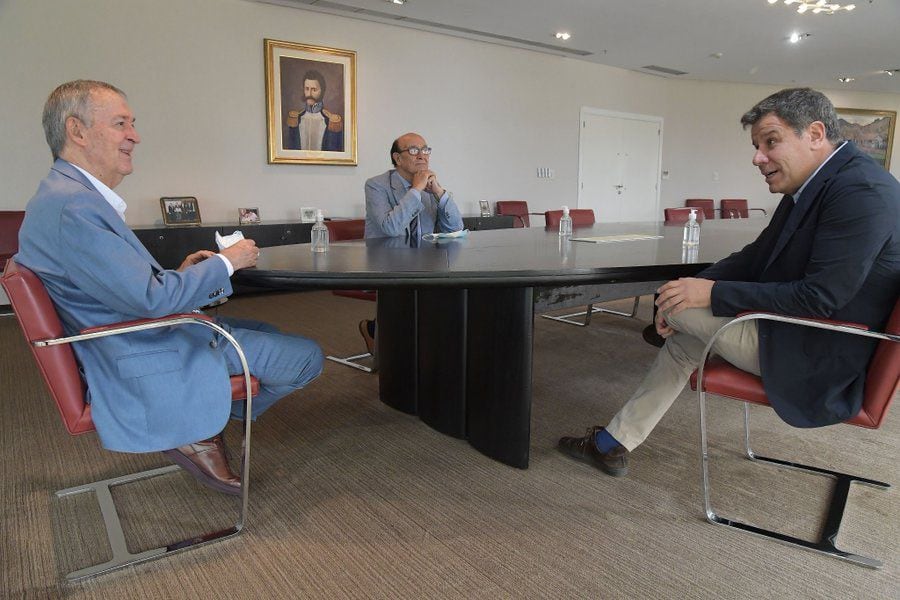
“Strengthening the UCR” is a motto that the leaders of that space repeat with a view to 2023, above all, with the aim of beating the PRO in a future STEP. But in practice, this flag shows nuances among the candidates that are profiled for presidential elections, including Gerardo Morales, Alfredo Cornejo and Facundo Manes. In their campaign teams, they manage different strategies: confronting the hawks, attacking the Front of All or positioning themselves outside the radical seal, as an alternative to the rift. But everyone agrees on a clear goal: not to be the Ernesto Sanz of 2015.
The governor of Jujuy was a key player in getting Together for Change to accompany the Government's project to agree with the IMF. He was the first to complain to the PRO hawks: “We incurred the debt, the least we can do is go and listen to Martín Guzmán.” In retrospect, and with the positive balances made by the top representatives of the bloc on the conciliatory image that Juntos for Change gave in Congress, Morales regret the accusations he received about his alleged alliance with Alberto Fernández.

In recent days, Elisa Carrió gave an interview to Infobae in which she added to the same idea: “Argentina could play a historical role: that those who took the debt did not even authorize financing. It was suicide.” “We were the first to say it”, Jujuy insist, in dialogue with this medium.
“Morales doesn't bank Alberto,” they clarify. Their relationship with the President, they say, has to do with the need to be “accountable” in the face of a possible default scenario, unlike the PRO who wanted to “break everything” and not support the agreement.
The president of the centennial party is one of those who is shaping up in the fight to reach the Casa Rosada in 2023. In their team they are confident in the possibility of winning the internship. What is the strategy? “Strengthening the UCR, with all that implies” and not going back to being a “caboose” as happened between 2015 and 2019. In short, they will not only target a national army, but also wear out the PRO. But one previous step is missing: to prevail against Cornejo and Manes.

The relationship between Morales and Cornejo is tense. In Mendoza they protest against the early launch and the relationship with the Jujujuño Front of All and on the other side they are not far behind: they say he responds to Macri and denounce that he left a “weak” administration in the party. “Today the UCR is stronger,” they confessed to Infobae.
Cornejo is one of those who agree to strengthen the UCR and present a “program” of government, just like Morales and Sanz himself. Although he considers it “hasty” to talk about candidacies, in his environment they work to position him as the only applicant. Unlike the opponents, in their strategy they use a realistic fact: the PRO has figures with more intention to vote, such as Patricia Bullrich, Horacio Rodríguez Larreta and Mauricio Macri himself.
In this sense, they analyze that the UCR is in inferiority of conditions to win a PASO with so many names in the presidential dance. With these letters, they believe that the leadership that Cornejo built from Mendoza gives him the ability to concentrate all the radicalism united under his candidacy. “Only then do we have a chance to beat PRO,” they say. From there, they will seek to repeat the federal armed that they achieved last year with the incorporation of Manes.

The case of Facundo Manes is different. Both Cornejo and Morales were drivers of their candidacy in the province of Buenos Aires in 2021. Although the neuroscientist flirted for a while with his entry into politics, he finally accepted the challenge of confronting Diego Santilli and “took the step”, as his slogan says. Today he serves as a deputy and aspires to be president.
The neuroscientist has against the lack of management and career as a political cadre. As a positive, it is one of the few radicals that can be detached 100% of what was the government of Cambiemos: it was not part of the governing coalition when Macri announced the takeover of the debt, for example.
Although it does not detach itself from the UCR, Manes projects his presidential strategy outside the party labels. Although it is defined as a historical radical, today it prefers to show itself away from the internal fights of the opposition space it integrates and above the disputes of the rift.
On its agenda, meetings and tours are planned by universities or independent bodies that help it to get rid of the radical seal. A few days ago he met with Juan Schiaretti in Córdoba: the bastion province of the opposition. As they explained to Infobae, they held a friendly and coincidental meeting regarding the future of the country. He was also encouraged to show with Patricia Bullrich. “He has no problem showing himself to anyone,” they argue.
None of the radicals gets tired of saying that the Gualeguaychú Convention - when the party approved joining with the PRO to arm Cambiemos - allowed them to grow and strengthen as they did in these times. In concrete terms, they went from having a single candidate with a testimonial role (Ernesto Sanz) to having three. But they even recognize that this abrupt change carries negative parts such as, for example, the difficult task of “managing egos and vanities”. “Each one goes to the court to look for their own identity, in that search they do not notice that the identity of the group is injured,” he knew how to analyze a reference in the space away from the competition.
KEEP READING:
Últimas Noticias
Debanhi Escobar: they secured the motel where she was found lifeless in a cistern
Members of the Specialized Prosecutor's Office in Nuevo León secured the Nueva Castilla Motel as part of the investigations into the case

The oldest person in the world died at the age of 119
Kane Tanaka lived in Japan. She was born six months earlier than George Orwell, the same year that the Wright brothers first flew, and Marie Curie became the first woman to win a Nobel Prize

Macabre find in CDMX: they left a body bagged and tied in a taxi
The body was left in the back seats of the car. It was covered with black bags and tied with industrial tape
The eagles of America will face Manchester City in a duel of legends. Here are the details
The top Mexican football champion will play a match with Pep Guardiola's squad in the Lone Star Cup

Why is it good to bring dogs out to know the world when they are puppies
A so-called protection against the spread of diseases threatens the integral development of dogs




